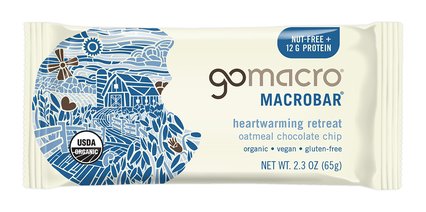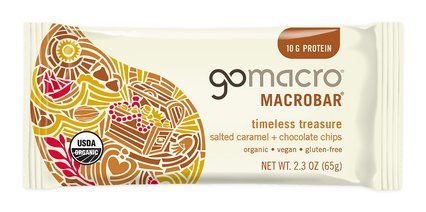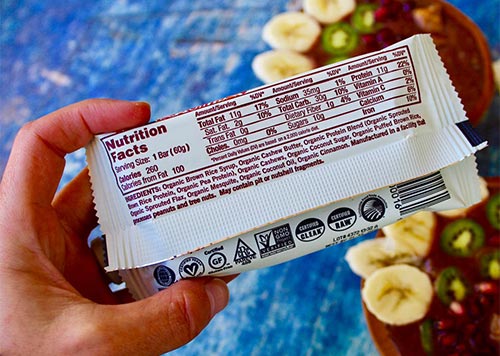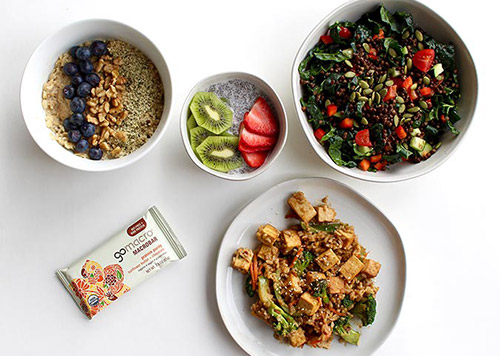5 Benefits of Getting Your Nutrients From Whole Foods vs Supplements
If you’re interested in health and wellness, there’s a good chance you have a cabinet filled with vitamins, supplements, powders, and superfood potions you’ve accumulated over the years. It can be hard to pass up the promise of optimized health that supplement companies, influencers, and the wellness industry are selling.

A 2019 survey found that 82% of people take at least one supplement daily, and the last couple of years have only amplified interest in bolstering health with supplements. In early 2020, vitamin sales in the United States experienced a historic 51% increase over 2019! While some supplements can be helpful, experts agree that when it comes to supplements vs food, a whole-foods, plant-based diet should always be the foundation.
Why Are Whole Foods Better Than Supplements?
Typically, the chemical structure of a vitamin taken in pill form is the same as or very similar to the chemical structure of the same vitamin found in food. So why choose real food vs a supplement?
First and foremost, we typically don't absorb nutrients in supplements the same way we absorb them when they’re found in whole foods. When we eat real food, we’re not consuming single nutrients, but rather a range of vitamins, trace minerals, enzymes, and proteins that work synergistically in our bodies. How well you absorb a given supplement depends on its quality, your personal diet, gut health, and more, so it’s nearly impossible to put a number on how much of any given supplement is used and how much is flushed out as waste.
This topic raises another key concern with supplements: lack of research and regulation. Although the FDA technically “regulates” dietary supplements, no clinical research, approval, or notification is required for a company to start selling a supplement. Unless a brand provides third party reports, consumers have no guarantee that the supplement they’re using actually contains what it says. Similarly, consumers have to trust that their supplements aren’t contaminated with toxins, heavy metals, or filler materials. While foods may have varying levels of nutrients, eating a variety of whole, plant-based foods ensures you’re getting plenty of nutrients with little risk of overdoing it on any one vitamin.
While many people overestimate the positive impact a supplement will have, it’s also imperative to mention the danger of underestimating the power of a supplement’s active ingredients. Just because something is “natural,” does not mean it’s safe for everyone. For example, Vitamin E and gingko can both thin the blood, and St. John's Wort (a common herbal supplement) makes medications for HIV/AIDS, heart disease, depression, organ transplants, and birth control less effective, which can have serious results.
The Benefits of Eating Whole Foods
The word “supplement” itself describes how we should think of them – supplementary to a healthy, whole-foods diet. A supplement may help fill nutritional gaps, especially for those with medical conditions and dietary restrictions. However, getting the majority of our nutritional intake from real food comes with many benefits.
1. Optimal Nutrient Absorption
As mentioned above, nearly all foods have more than one vitamin, mineral, or enzyme. “Food synergy” is the concept that a food’s overall effect on our body is greater than or different from the isolated actions of the individual vitamins, proteins, fats, etc. that make up the food. Real, whole foods contain a wide variety of nutrients we need, often paired with other compounds that help our bodies use them efficiently.
2. The Buffer Effect
Ever notice how certain supplements tend to upset your stomach or need to be taken with food? When you get your nutrients from food, the other components of the food act as a buffer to mitigate some of the potential side effects. Additionally, spreading your nutrient intake throughout the day (rather than getting the entire recommended daily allowance in one pill) gives your body time to properly digest and utilize them.
3. Simple & Accessible
Choosing a whole-foods diet removes a lot of the confusion and hype around what’s “healthy.” Pricey supplements and fad diets come and go, and many of them can be difficult or unrealistic to maintain long-term. Sticking to whole foods like vegetables, fruits, nuts, seeds, legumes, and whole grains doesn’t require any tracking or special knowledge, and it’s never going to go out of style.
4. Supports Evidence-Based Health Outcomes
Most people take supplements to optimize their health, yet for healthy people without deficiencies, there’s little evidence that they offer any significant health benefits. Studies do, however, show that eating a whole-foods, plant-based diet can decrease your risk of type 2 diabetes, heart disease, some types of cancer, cognitive decline, and can even aid in reversing coronary heart disease.
5. More Nutritional Bang for Your Buck
Fueling your body with mostly nutrient-dense food is like cutting out the middle man and going straight to the source for your vitamins. The cost of high-quality supplements can add up quickly, especially when it comes to wellness supplements like adaptogens, functional beverages, mushroom blends, and superfood powders that have recently become popular. While it might feel more expensive to eat healthy foods, a colorful, plant-based meal contains nutrients you’d need a handful of expensive supplements to replace!
Should You Get Your Nutrients From Food or From Supplements?
The consensus among health professionals is that an average, healthy person should get most or all of their nutritional needs met through a balanced diet. However, supplements do still have their place!
Those with diagnosed nutrient deficiencies can definitely benefit from supplementation. For example, people with B12 deficiency almost always need a supplement. Similarly, people with Crohn’s or celiac disease may have difficulty absorbing nutrients from food. Other medical conditions, such as osteoporosis or macular degeneration, may require extra vitamins beyond a normal diet. It’s also highly recommended that pregnant women take a prenatal vitamin to provide for the extra nutritional requirements of a growing baby, especially folic acid.
Finally, those with food allergies or dietary restrictions may also need to supplement. Vegans nearly always need to supplement or eat foods fortified with B12 as there is no plant source. There are also few plant sources of Vitamin D, so those who avoid foods like eggs, shellfish, and salmon may need to supplement, especially if they’re not getting much sun exposure.
Getting Started With a Whole-Foods Diet
Ready to start getting more of your nutrients from whole foods? Start by building your plate around unprocessed or minimally processed foods you enjoy. Try to make your meals as colorful as possible by filling half the plate with veggies, then adding protein, healthy fats, and grains. Each healthy food you add is like a delicious multivitamin!
If you’re still learning your way around the kitchen, you can find lots of delicious plant-based recipes online, on social media, and in cookbooks to build your confidence. Above all, have patience and grace with yourself. It’s about balance, not perfection – and every small change can make a big difference in how you feel!
Need a delicious and convenient source of real food nutrition? Grab your favorite plant-based MacroBars – always made with certified ingredients you can trust.









